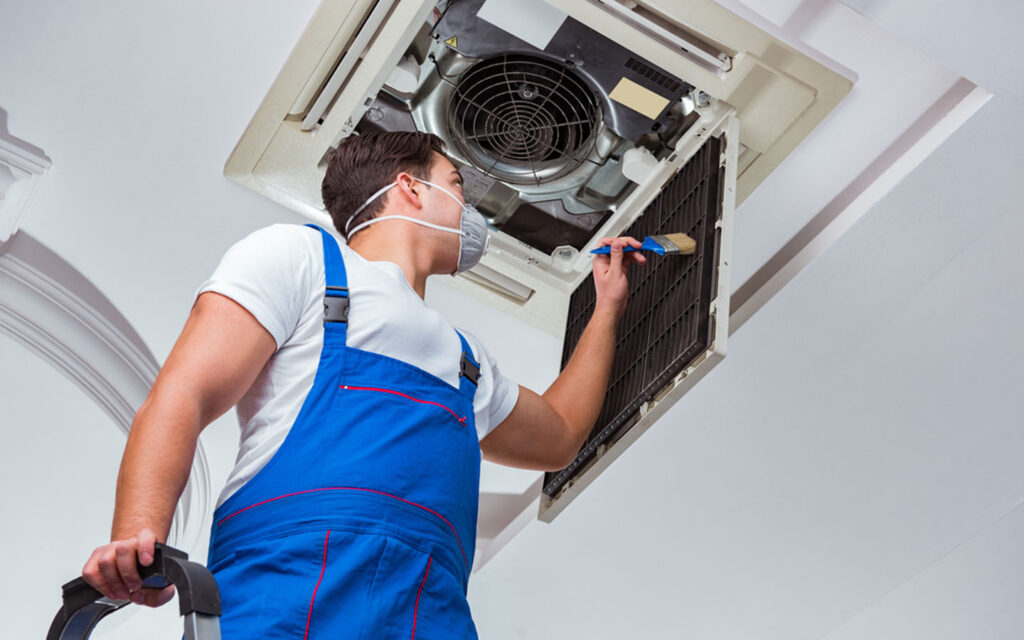
What Are The Symptoms Of Bad Air Quality In A House?
When it comes to ensuring a healthy home environment, acknowledging the signs of bad air quality is crucial. Poor air quality inside your house can lead to various health issues and discomfort for you and your family.
Understanding these symptoms is the first step towards mitigating them with the help of professional indoor air quality services Alpharetta, GA.
Common Symptoms of Poor Indoor Air Quality
1. Respiratory Issues and Allergies
One of the most noticeable signs of compromised air quality is the exacerbation of respiratory conditions and allergies.
If you or your family members start experiencing frequent sneezing, coughing, congestion, asthma attacks, or difficulty breathing, it could indicate pollutants in your indoor air.
Indoor air quality services companies often point out that pollutants like dust mites, pet dander, mold spores, and pollen are common culprits.
2. Persistent Odors and Stale Air
An ongoing musty or stale smell in your home can signal bad air quality. These odors are unpleasant and can also indicate mold growth or the accumulation of volatile organic compounds (VOCs) from paints, furnishings, and cleaning agents.
Engaging indoor air quality services in Alpharetta, GA, can help identify and remove the sources of these odors.
3. Dust Accumulation
Excessive dust around your home, especially near vents and on surfaces, can reveal an issue with your home’s air filtration system. It’s not just about aesthetics; dust accumulation can degrade indoor air quality, affecting your health and comfort.
Indoor air quality services companies can assess your HVAC system and recommend solutions to improve filtration and airflow.
4. Fatigue and Headaches
If the inhabitants of your home are experiencing unexplained fatigue, dizziness, or frequent headaches, poor indoor air could be a contributing factor.
These symptoms can result from exposure to carbon monoxide, VOCs, and other pollutants that indoor air quality services in Alpharetta, GA, are equipped to detect and address.
5. Skin Irritations
Dryness, irritation, or exacerbation of skin conditions such as eczema or psoriasis can also be symptomatic of bad indoor air quality.
Low humidity levels and particulate matter in the air can irritate the skin, prompting a need for professional assessment from indoor air quality services companies.
Why Choose Professional Indoor Air Quality Services?
Addressing indoor air quality is about removing immediate discomforts and ensuring the long-term health and well-being of your home’s inhabitants.
Indoor air quality services Alpharetta, GA, have the expertise and tools necessary to assess and improve the air quality in your home.
From identifying sources of pollution to recommending and implementing solutions, these professionals play a crucial role in creating a healthier living environment.
In conclusion
Recognizing and addressing the symptoms of bad indoor air quality is essential for maintaining a healthy and comfortable home environment.
Superior Indoor Comfort is dedicated to providing top-notch indoor air quality services in Alpharetta, GA, ensuring your home is safe and welcoming for everyone.
FAQs
How often should I have my indoor air quality tested?
It’s recommended to test your indoor air quality every two to three years or sooner if you notice any symptoms of poor air quality or make significant changes to your home that could affect air quality.
Can plants improve indoor air quality?
Yes, certain plants can help improve indoor air quality by absorbing pollutants. However, relying solely on plants is insufficient for homes with significant air quality issues.
How do air purifiers help with indoor air quality?
Air purifiers can remove particulates, allergens, and pollutants, significantly improving indoor air quality. They are particularly helpful in rooms where people spend most of their time.
What is the best way to prevent mold growth in my home?
Controlling humidity levels, ensuring proper ventilation, and promptly addressing water leaks are key strategies to prevent mold growth and maintain good indoor air quality.
Can poor indoor air quality affect sleep?
Yes, poor indoor air quality can lead to sleep disturbances by irritating the respiratory system or causing allergies, making it difficult to get a restful night’s sleep.

